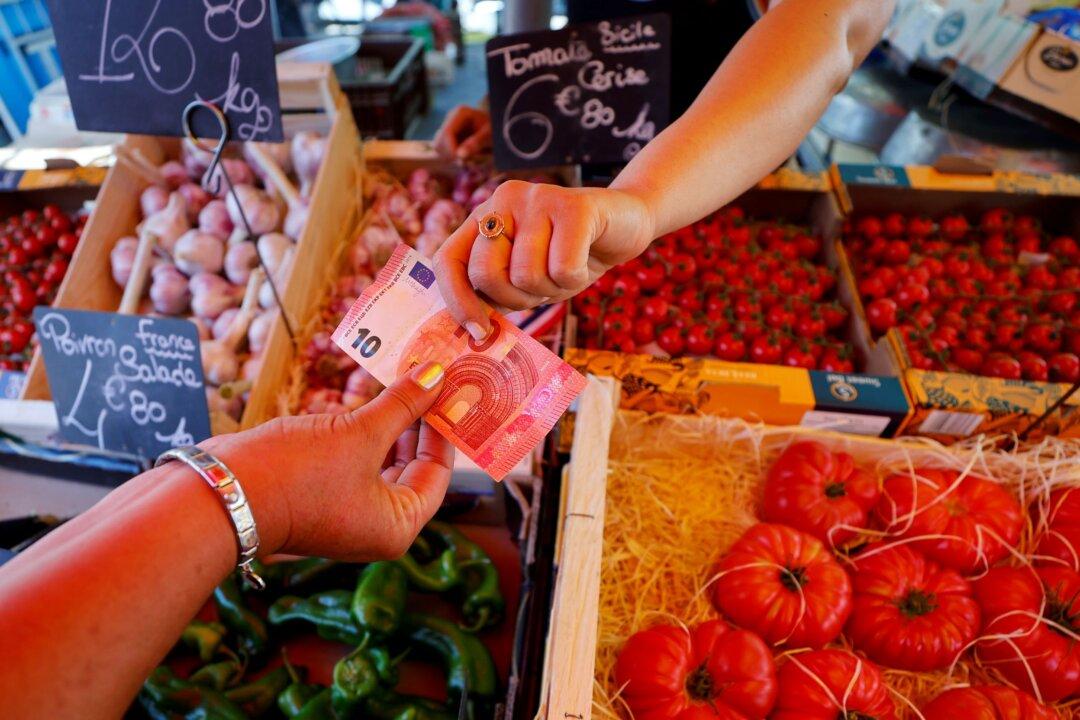LONDON—The euro tumbled towards parity versus the dollar on Monday as the biggest single pipeline carrying Russian gas to Germany entered annual maintenance, with flows expected to stop for 10 days.
Investors are worried the shutdown might be extended due to the war in Ukraine, restricting European gas supply further and tipping the struggling eurozone economy into recession.





